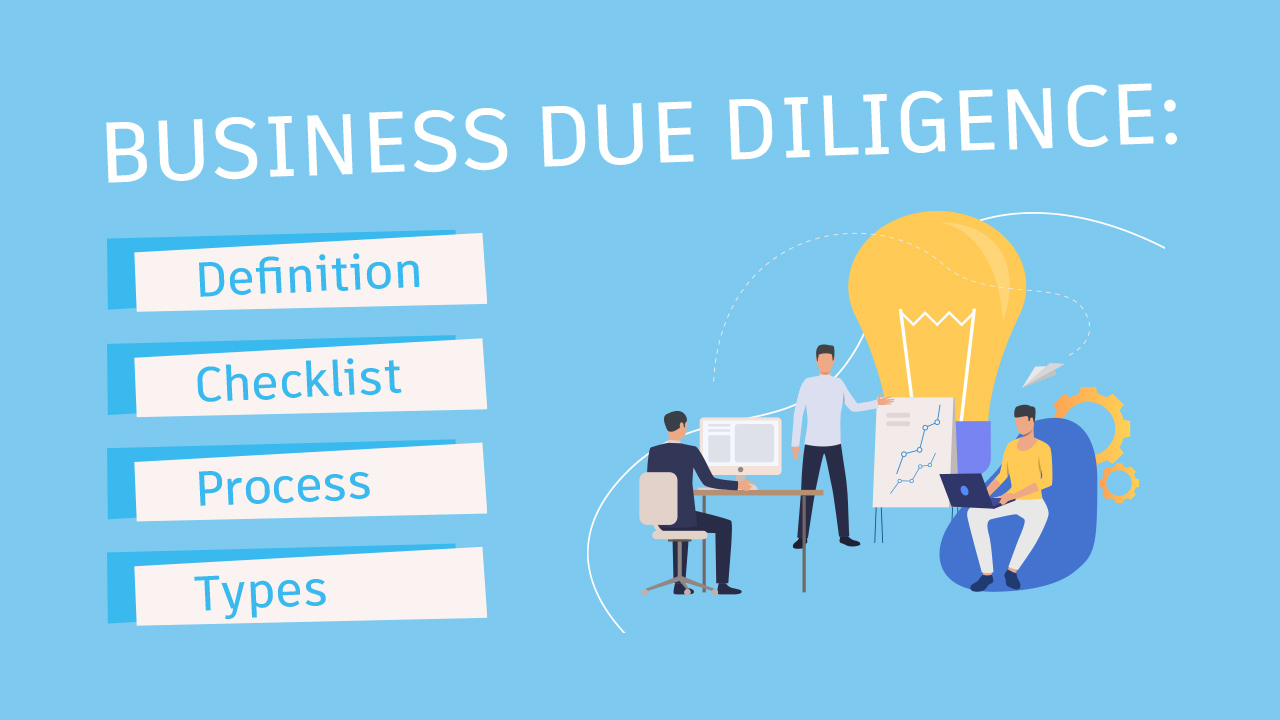Have you ever heard of due diligence in business? It’s a process used to assess the risks and opportunities associated with a particular decision. This could be anything from an acquisition, merger, or joint venture to an investment in a startup. In this blog post, we will provide an overview of the definition, checklist, process, and various types of business due diligence.
What is Due Diligence in Business?
Business due diligence is defined as “the investigation or examination of a company’s financial and legal status before entering into any type of agreement or transaction.” It helps identify any potential risks associated with the proposed transaction and allows businesses to make informed decisions about whether or not they want to move forward.
Here are some examples of due diligence:
- Conducting thorough inspections on a property before buying it to make sure that it is a good investment
- An underwriter auditing an issuer’s business and operations before selling it
- A business exhaustively examining another to determine whether it is a sound investment before initiating a merger
- Consumers reading reviews online before purchasing an item or service
- People checking their bank accounts and credit cards frequently to ensure that there is no unusual activity
- An employer contacting an applicant’s references before initiating an employment offer to ensure that they are an apt candidate
- An individual testing or sampling a product out in-store before buying
Types of Due Diligence in Business
Here are four main types of business due diligence that can be used depending on the situation at hand:
1. Financial Due Diligence
Financial due diligence reviews the financial history and status of a company. It covers topics such as cash flow, profitability, debt levels, capital structure, investments, tax position, and more. This type of due diligence helps to ensure that the company being examined is in good financial health before entering into an agreement with another party.
2. Legal Due Diligence
The legal due diligence involves evaluating all legal aspects of a potential deal or transaction. This includes reviewing existing contracts, analyzing the legal risks associated with a proposed venture, and ensuring that all documents are properly executed. The purpose of legal due diligence is to identify potential issues before they become problems down the line.
3. Operational Due Diligence
Operational due diligence looks at how well a business is running from an operational standpoint. It evaluates factors such as efficiency, effectiveness, customer relations, and employee morale. While this type of due diligence does not guarantee success, it can provide valuable insight into how well a particular business operates which can help inform decision-making in the future.
4. Technology Due Diligence
Technology due diligence focuses on assessing the technology used by a company or organization in order to evaluate its current capabilities and opportunities for improvement or growth. This type of due diligence includes evaluating hardware systems, software applications, data security practices, and more. Knowing what technology your business relies on can help you make better decisions about investments in new technologies as well as identify potential risks or opportunities for improvement within your existing infrastructure.
Process
The due diligence process for buying a business process typically involves three distinct steps. First, you conduct a preliminary review to identify any potential risks and areas for further investigation. Next, you conduct a detailed review which involves gathering information from relevant internal and external sources such as financial statements, customer records, supplier agreements, etc.
Finally, you present the results of the investigations in a report which outlines any potential issues or opportunities for further development. This report serves as a guide for executives when making their final decision on whether or not to proceed with the proposed transaction.
Business Due Diligence Checklist
When conducting business due diligence, you must consider several factors. These factors include, but are not limited to, the following:
- Financial performance & position (including cash flow & liquidity)
- Organizational structure & management team
- Legal compliance (including contracts & regulatory requirements)
- Competition & market conditions
- Potential liabilities & claims against the company
Conclusions
Due diligence in business provides companies with invaluable insight into their investments or transactions before they commit themselves financially or legally. By taking advantage of this tool, companies can better assess risk versus reward and make more informed decisions about how best to move forward with their plans for growth or expansion.
Whether you’re planning an acquisition or investing in a startup, having an understanding of what business due diligence entails — and how it can benefit your organization — is essential for success in today’s competitive marketplace.







